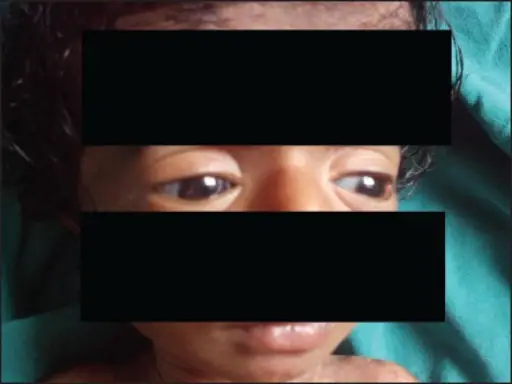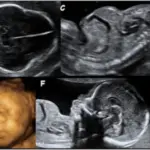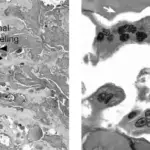Osteogenesis imperfecta is a genetic disorder of connective tissues caused by an abnormality in the synthesis or processing of type I collagen.
What is the Pathology of Osteogenesis Imperfecta?
The pathology of osteogenesis imperfecta is:
-Etiology: The cause of osteogenesis imperfecta is mutations in the COL1A1 and COL1A2 genes.
-Genes involved: COL1A1 and COL1A2.
-Pathogenesis: The sequence of events that lead to osteogenesis imperfecta is the loss of function mutations like stop mutations that lead to haploinsufficiency.
-Histology: The histology associated with osteogenesis imperfecta shows crowded osteocytes within the bone.
How does Osteogenesis Imperfecta Present?
Patients with osteogenesis imperfecta typically affect both males and females present at any age depending upon the severity of the presenting symptoms. The symptoms, features, and clinical findings associated with osteogenesis imperfecta include blue sclera, short stature, loose joints, hearing loss, breathing problems, and teeth problems.
How Is Osteogenesis Imperfecta Diagnosed?
Osteogenesis imperfecta is diagnosed based on clinical features, family history, and genetic tests.
How Is Osteogenesis Imperfecta Treated?
Osteogenesis imperfecta is treated through fracture care, physical therapy, and surgical procedures.
What is the Prognosis of Osteogenesis Imperfecta?
The prognosis of osteogenesis imperfecta is good. An individual can live a normal lifespan.



